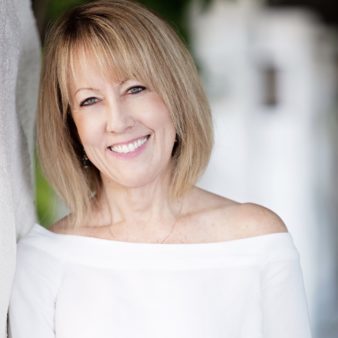
Politics is the art of looking for trouble, finding it whether it exists, diagnosing it incorrectly, and applying the wrong remedy. ―
Often clients will come to therapy ready to talk about their concerns regarding current political policy. Politics is discussed in treatment more than you might imagine. If you think about it, it makes sense. The values people hold are deeply tied to their political beliefs and thus affect their lives in significant ways.
Yet, this doesn’t feel like just another political cycle. It appears very different today. Much more divisive.
Friendships are breaking. Marriages are strained. Families are divided. And if you’re on different sides of the political aisle, common ground between the two is nowhere to be found.
Politics vs. Respect, Friendship, & Love
When did politics become more important than respecting your friendships and loving your families?
I get it. Sitting in therapy sessions and listening to clients talk about their political views requires a therapist to have a neutral expression and a detachment from my own beliefs so that I can support and hold their feelings and concerns. It’s hard right now.
Current issues facing our country matter, and being concerned or passionate about how you view them makes sense.
However, it’s essential to keep things in perspective and not make a hasty decision to end a meaningful relationship over political differences regarding friends, family, or your marriage.
John and Mary’s Story
When John and Mary met in college, they had politics in common. Both were passionate about activism, and they bonded over their shared beliefs. During their 30-year marriage, John’s beliefs gradually evolved, and now he sits comfortably on the other side of the aisle.
He likes to have robust debates with Mary about current events, and Mary finds herself becoming overwhelmed and unable to stay in those conversations.
Their political differences have spilled into abruptly ended conversations, leaving them both upset and frustrated.
Linda and Ted’s Safe Word
Linda and Ted have been married for almost 30 years and share the same political views. The difference is that Linda sees things in black-and-white terms, while Ted sees nuance and gray in some areas.
This difference can lead to discussions where one or both say they become flooded and have to end the conversation. They have learned to create a “safe word” between them, to honor when their political dialogue needs to end to preserve their relationship.
Katherine and Julie’s Faltering Friendship
Katherine and Julie have been good friends since childhood. They went to school together, went to each other’s weddings, and still lived in the same town. Their children have playdates.
Katherine has been a realtor for over 20 years. Julie was about to list her home for sale and had talked to Katherine about listing it for her.
That was until Julie learned about Katherine’s political views. Julie told Katherine that she could no longer let her handle the sale of their home because of her beliefs.
Their long-time friendship ended just like that.
What can you do when your beliefs are the polar opposite of those you love?
I submit that before you end or estrange yourself from friends, family, & loved ones, you consider making one of two choices:
You can learn how to discuss politics without fighting, or you can steer clear of the debate.
Discussing Politics Without Fighting
1. Look for the good in your loved one’s position.
2. Stick to facts, not opinions.
3. Be a willing and generous listener.
4. Look at your differences as a way to expand your thinking and grow.
5. Pay attention to your tone of voice and avoid angry outbursts.
6. Respect that there’s a time to back down.
Steering Away From Political Debates
1. Ask yourself what you hope to accomplish by having this conversation.
2. Remember that political foes attack each other for political gain, not because they hate each other.
3. Rather than trying to prove points, ask questions.
4. Keep your political passions private.
5. Never debate issues online.
6. Ask yourself if any political ideas or positions are deal-breakers for your relationships.
When Political Positions Become Deal-Breakers
Before you decide to end a significant relationship over differing political views, thoroughly think this through.
Is this relationship important to you? Can you keep political conversations off-limits and focus on other shared interests? Or do your political differences create incompatibility and a bridge you cannot cross over?
These are tough choices and decisions to make. Be sure to do your due diligence before making a decision you regret.

 Hi, my name is Jamie Daniel-Farrell. I'm a Licensed Marriage and Family Therapist with a practice in Westlake Village, CA. Specializing in couples counseling and divorce recovery, I provide counseling services for individuals and couples who are motivated to create healthier, happier lives and relationships. If you're ready to break out of unhealthy patterns in your relationship, I would be happy to help! Please feel free to reach out or to call me at:
Hi, my name is Jamie Daniel-Farrell. I'm a Licensed Marriage and Family Therapist with a practice in Westlake Village, CA. Specializing in couples counseling and divorce recovery, I provide counseling services for individuals and couples who are motivated to create healthier, happier lives and relationships. If you're ready to break out of unhealthy patterns in your relationship, I would be happy to help! Please feel free to reach out or to call me at: